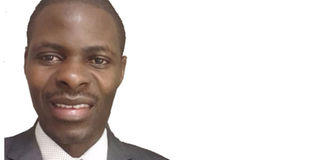Wealth is not created through political rallies

Moses Khisa
What you need to know:
- The economy. This largely Kampala-based Ugandan economy is dominated by two major sectors and actors.
Our Gross Domestic Product (GDP) is estimated at about $25 billion. This is the total stock of wealth we have in Uganda. It is less what Microsoft paid to buy a virtue company – LinkedIn – at $26 billion. LinkedIn is a professional social networking platform. Worse, the rather modest total national wealth we have is disproportionately owned by a small fraction of the population while the vast majority of compatriots own very little or nothing. They live in humiliating poverty.
The percentage of the Uganda’s poor was estimated at slightly under 20 percent in 2017. The World Bank reported that the national poverty line had rapidly declined from more than 31 per cent to 19.7 per cent in a decade.
But the poverty line is rather arbitrarily put at a very low threshold and defined in terms of living on slightly over a dollar a day. If the amount spent per day is doubled, the percentage of those characterised as poor more than doubles. In real life, there is little difference in the quality of life between living on $2 versus $1 a day. On paper, like many African countries, Uganda has enormous wealth potential. The wealth of a nation grows and expands depending on the capacity for value addition through innovation and technology, labour productivity and overall expansion in economic activity. Two acres of land could be worth Shs10 million if what comes out of them is 100 bags of maize or they could house a Shs10 billion apparels plant that employs hundreds. We have had some flashes of growth and transformation but which mask the intractable poverty Ugandans are grappling with. More than half of our economy, in absolute terms, is based in Kampala. Even in Kampala, the central business district, a small radius, has a huge share.
This largely Kampala-based Ugandan economy is dominated by two major sectors and actors. First, the real-estate, speculation and hedging which takes the form of shopping malls, arcades, apartment buildings and university hostels. Second, the services sector, which is primarily banking, telecommunications and insurance, all firmly under the control of foreign business actors. There is not much productivity and value-addition in those two sectors, therefore, very few employment opportunities. To get the Ugandan economy to move beyond Kampala and not be dominated by sectors that have little value addition, there has to be a recourse to strategies that propel manufacturing, land reforms that can facilitate high-value agricultural output and policies that incentivise technology transfer and local innovation. These cannot be achieved through presidential tour rallies ostensibly to promote wealth creation.
What Mr Museveni has been doing crisscrossing the country is shore up his otherwise battered image as a ruler who shamelessly does anything to cling onto power. Wealth creation is not an academic exercise to be taught through a presidential lecture at a rally. Rather, it is a function of the macroeconomic framework, specifically the policies relating to land ownership and usage, access to investment credit, stable and sufficient power supply, improvement in the quality of the human resources and growth in the stock of technology.
Other than the pet subject of roads and roads (never mind the huge thieving involved and the shoddy works in many cases), Mr Museveni’s rallies entail little more than the usual grandstanding and paternalism. The rallies are about reminding Ugandans of the liberation he brought, chiding his critics and opponents for being unserious and ending with the stage-managed theatrics of being crowned –sole-candidate, one of the most undemocratic practices involving anyone who claims to be a democrat. True democrats compete. They don’t scheme to be declared sole-candidates.
Meanwhile, his opponents are being harassed and chased down by the military and police. If you must use coercive power of the state to deny opponents the space to mobilise and compete fairly, deploy public financial resources through a hefty supplementary budget, why not issue a decree crowning you as a life-president the Idi Amin-style?
While we are it, foreign election observers will arrive a few days to polling day, totally clueless of the fact that one candidate started campaigns two years early, used the state’s financial and coercive tools and denied opponents their political rights. They will issue the predictable and rehashed statements of ‘… some irregularities but the election outcome represented the will of the Ugandan people.’
We have a sheer mockery of democracy, deep social fragility with the possibility of conflict, mounting youth unemployment in the face of overall economic distress, land crises that will likely be the major frontier of conflict, all wrapped together. The campaign rallies that are at any rate a big drain on the national coffers, will not solve any of these critical problems.
Dr Khisa is assistant professor at North Carolina State University (USA).
[email protected]




